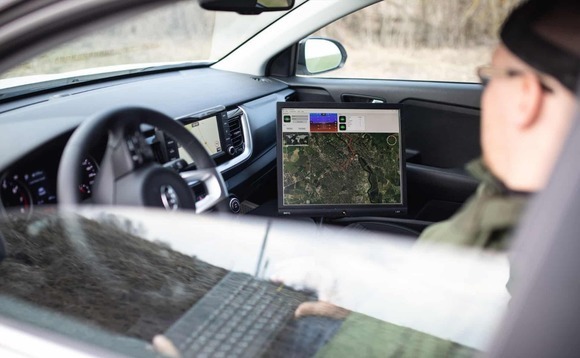
Deal focus: KKR agrees first Australia growth tech deal

KKR has led a USD 68m Series B round for Australia’s Advanced Navigation, an autonomous systems developer for robots and vehicles used everywhere from the freeway to orbit
Australian vehicular artificial intelligence (AI) developer Advanced Navigation was founded in 2012 and didn't raise its Series A round until late 2019, when Brick & Mortar Ventures, In-Q-Tel, and Main Sequence Ventures provided USD 13m.
Since then, the company claims to have doubled its revenue every year, and it expects to double again in 2023. Growth has come with an aggressive expansion into the US and Europe, where clients include General Motors, Tesla, Ford, Boeing, Airbus, Lockheed Martin, and NASA.
Former Australian prime minister Malcolm Turnbull – who became a KKR advisor in 2019 – was an early investor and sits on the board. He introduced Advanced Navigation to the private equity firm, which was selected from a field of suitors thanks to its marketing network.
"They have offices everywhere and are really skilled at scaling sales growth globally," said Xavier Orr, CEO of Advanced Navigation. "One of our biggest plans out of this raise is to really scale up the global sales. We ended up going with KKR on that basis."
It is KKR's first growth technology investment in Australia. Turnbull, Main Sequence, and In-Q-Tel also participated in the round, as did AI Capital and Our Innovation Fund. Total funding since inception comes to around USD 85m.
"Advanced Navigation has developed a unique way to leverage proprietary machine learning and AI to make autonomous systems and components more accurate, durable, and cost-effective for companies," said Louis Casey, KKR's growth technology lead in Australia, New Zealand, and Southeast Asia.
"Its AI is continually refined and improved over time with data ingestion and training, which helps to build a constantly growing moat around the company's strengths and ultimately a platform that can be used to release new products quickly and effectively."
Advanced Navigation prides itself on cracking difficult technical entry barriers in smart vehicular automation. AI-enabled technologies are commonplace in guidance and camera systems developed for autonomous cars, but not these vehicles' inertial navigation systems.
"People have been trying for many years, but it's a more challenging problem than it may seem from the outside," Orr said.
The key to the technology's value, however, may be in its flexibility. Automotive and aerospace are intuitive and fast-growing target markets that are already a significant part of the business. But substantial upside is also being pursued in military, agricultural, space, geospatial, mining, marine, and subsea applications.
Casey observed that Advanced Navigation's AI balanced high performance with competitive pricing. This is said to make it a good fit for use-cases where accuracy is paramount, such as a recent space program, as well as large-scale commercial applications such as autonomous cars.
"We're pretty dominant," Orr said referring to the company's market share and positioning versus competitors.
"We generally find any opportunity where they're comparing competitors against us, we'll win it just because if you compare our AI-based technology and competitors' traditional technology, side by side, ours is typically 10 times the performance."
Expansion efforts will include a significant focus on the defence, aerospace, and security sectors in the US, where former CIA director and retired army general David Petraeus will support corporate and government agency networking. Petraeus is a partner at KKR and chairs the firm's Global Institute think-tank.
Meanwhile, Japan and Korea number among new geographies on the agenda. In these markets, Advanced Navigation sees potential in autonomous systems for marine and subsea applications including fish farming, as well as wind turbines and drone deliveries.
The plan helps illustrate the increasing ubiquity of automated systems in everyday life, a trend Orr calls "the autonomy revolution." He describes the industry as worth USD 165bn currently and growing at 30% a year, with driverless cars, flying taxis, and delivery drones among the top growth segments.
"We've seen a lot of automation come into our lives in the last 15 years, and that pace is only going to increase," Orr said. "That will only help to make our lives safer and improve our quality of life."
Latest News
Asian GPs slow implementation of ESG policies - survey
Asia-based private equity firms are assigning more dedicated resources to environment, social, and governance (ESG) programmes, but policy changes have slowed in the past 12 months, in part due to concerns raised internally and by LPs, according to a...
Singapore fintech start-up LXA gets $10m seed round
New Enterprise Associates (NEA) has led a USD 10m seed round for Singapore’s LXA, a financial technology start-up launched by a former Asia senior executive at The Blackstone Group.
India's InCred announces $60m round, claims unicorn status
Indian non-bank lender InCred Financial Services said it has received INR 5bn (USD 60m) at a valuation of at least USD 1bn from unnamed investors including “a global private equity fund.”
Insight leads $50m round for Australia's Roller
Insight Partners has led a USD 50m round for Australia’s Roller, a venue management software provider specializing in family fun parks.







